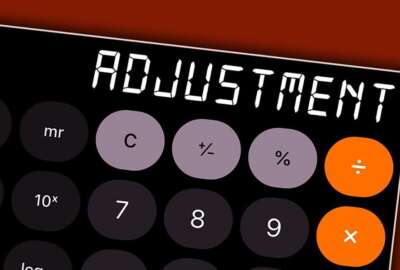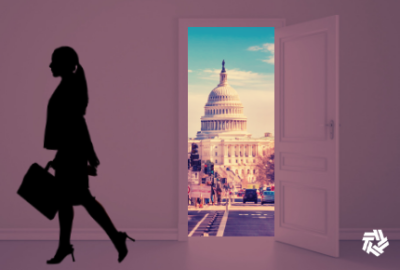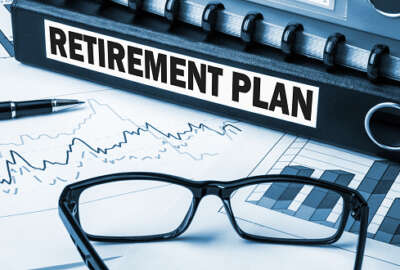Choosing when to retire: More complicated than ever?
When choosing when to retire, employees often fall into two groups, one federal benefits expert said. So where do you sit?
Deciding when to retire is one of those big, scary life decisions. The answer is different for everyone. Federal benefits experts can provide advice but perhaps no one “right” answer.
We’ve surveyed our readers here at Federal News Network about their retirement decisions and the factors that go into the planning. Every year, pandemic or not, they cite a wide variety of reasons to stay or go.
There’s money, job satisfaction, travel and whatever else you’re planning for the next stage of your life, plus other personal health and family matters too. If you’ve been through it before or started planning a few years ago, I’m betting a global pandemic — and all of its quirky, confusing and anxiety-inducing consequences — didn’t factor into the equation.
So far, the data tells us more feds are retiring this year than in 2020, when the pandemic scared off many from making the big leap.
According to a quick analysis of monthly retirement data from the Office of Personnel Management, some 80,858 feds have retired during the first nine months of 2021, compared to the 72,754 employees who took the leap during the same time period last year.
With the exception of the first two months of the year, 2021 federal retirements outpaced those from the previous year during each month.
So yes, more feds are retiring this year compared to the previous one. That's not exactly a difficult feat, considering federal retirements fell to a 10-year low in 2020.
"Conceptually not much has changed," said Greg Klingler, chief operating officer of the Government Employees’ Benefits Association (GEBA).
Feds continue to approach the retirement question in a similar way as they did last year, and they tend to fall into two groups, he said.
Group 1 is conservative. They look back at the stock market volatility from last winter and worry it will happen again. They're concerned their savings won't stand up to another major dip, Klingler said.
Those rising prices at the grocery store and the gas pump don't help settle anxiety either, no matter what retirees are expected to get through cost of living adjustments next year (a 5.9% COLA for those in the Civil Service Retirement System, a 4.9% adjustment for feds in Federal Employee Retirement System).
With so little feeling seemingly "settled," why retire now? These feds have grown accustomed to their work-from-home lifestyles, and they're enjoying it — at least enough to put off retirement a little longer.
And what about those travel plans? Well, they're still looking a little iffy.
"Another thing that I hear a lot of is, 'Well, what would I do if I retired? I can't travel like I wanted to. Even if I can get into the country now, what happens if they have a surge in COVID cases and they lock down the country or the United States stops allowing people who were in the country back into the country?'" Klingler said. "There's a lot of risk right now, or at least a lot of perceived risk, when it comes to traveling, which is what a lot of people want to do, especially people who are planning on retiring between 57 and 62 on the younger side."
Then there's group 2, the feds who have pushed their retirement dates forward, or at least those who marked a day on the calendar and are sticking to it.
"They want to be able to control when they return to normal," Klingler said. "They don't want their employer to dictate when they return to normal or not."
This group has a different outlook on the money factor as well. The prospect of future volatility doesn't bother them, or at least not as much. They've reached their goals and they're ready to go, pandemic or not.
"The market has done very, very well since March 23, 2020," Klingler said. "Their account values are higher than they've ever been. They continue to butt up against all-time highs in the S&P 500, and they've hit their number. Where they came up with the number, it differs from person to person. Sometimes they come up with that number very strategically; sometimes it's kind of a number they pull out of the air."
Interestingly enough, both groups cite the market as a reason for choosing their preferred course of action, though they have different interpretations of it, Klingler said.
Of course, there are other considerations too.
We've heard from some feds who tell us the vaccine mandate is weighing on their decision to retire. Others have told us the pandemic made them feel unsafe because they couldn't work from home. There are those who got COVID, and perhaps still aren't feeling like their old selves.
"Everybody is looking at question marks and grasping at straws on what the future holds," Klingler said. "When it comes to this level of variability, they're either going to be very conservative and continue to work like group no. 1, or it's going to be a catalyst for them to make large decisions like group no. 2. That probably will continue for the foreseeable future."
So where do you sit?
Nearly Useless Factoid
By Alazar Moges
The first citywide Halloween celebration took place in Anoka, Minnesota, in 1921.
Source: Insider
Copyright © 2025 Federal News Network. All rights reserved. This website is not intended for users located within the European Economic Area.
Nicole Ogrysko is a reporter for Federal News Network focusing on the federal workforce and federal pay and benefits.
Follow @nogryskoWFED






